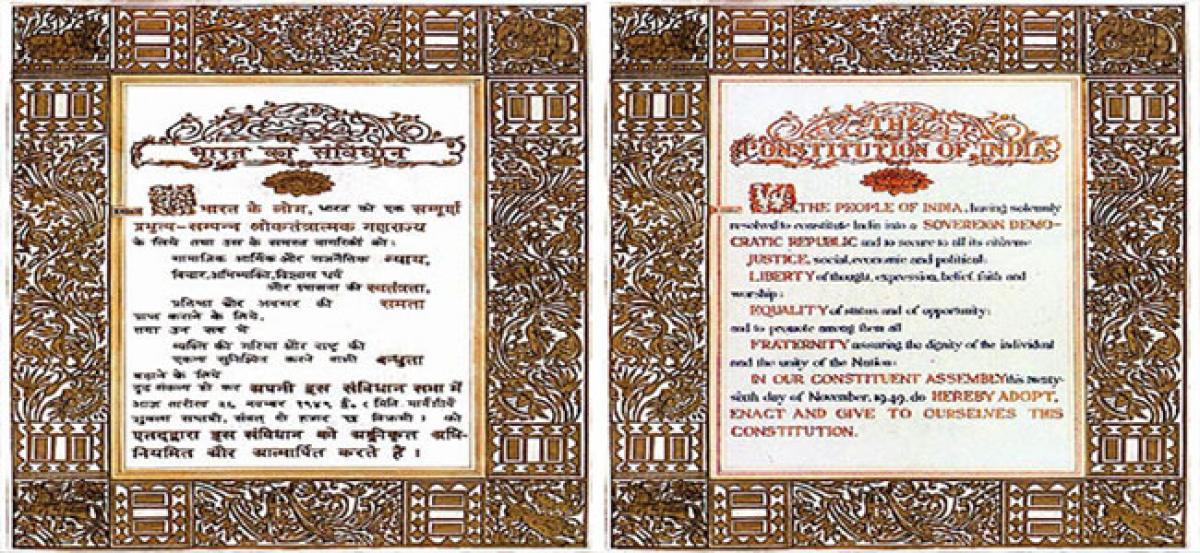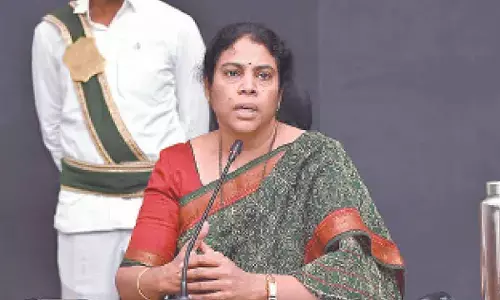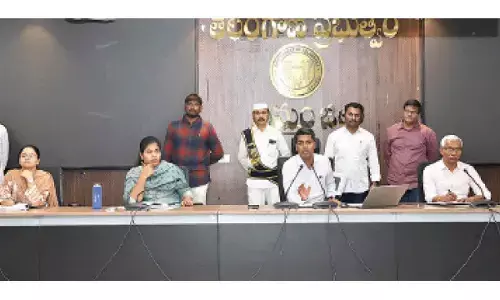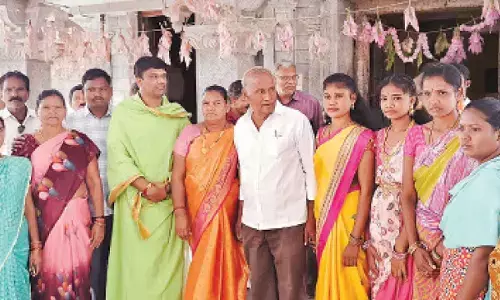Attorney General, Solicitor General and Advocate General in Indian Constitution

The Attorney General for India is appointed by the President of India under Article 76(1) of the Constitution of India and holds office during the pleasure of the President. He must be a person qualified to be appointed as a Judge of the Supreme Court. The Attorney General is responsible for giving advice to the Government of India upon such legal matters and to perform such other duties of legal
Attorney General of India
• The First Attorney General Was M.C Setavad at the time when India got Independence and Jawaharlal Nehru was our Prime Minister.
• Salary of Advocate General of India: 90,000 per month
• The First Solicitor General of India was C.K Daphtary
• Article 76 - Attorney General of India is the Indian government's chief legal advisor, and its primary lawyer in the Supreme Court of India.
The Attorney General for India is appointed by the President of India under Article 76(1) of the Constitution of India and holds office during the pleasure of the President. He must be a person qualified to be appointed as a Judge of the Supreme Court.
The Attorney General is responsible for giving advice to the Government of India upon such legal matters and to perform such other duties of legal character as may be referred or assigned to him by the President.
The Attorney General has the right of audience in all Courts in India as well as the right to participate in the proceedings of the Parliament, though not to vote. The Attorney General appears on behalf of Government of India in all cases(including suits, appeals and other proceedings) in the Supreme Court in which Government of India is concerned.
He also represents the Government of India in any reference made by the President to the Supreme Court under Article 143 of the Constitution.
The Attorney General is assisted by a Solicitor General and four Additional Solicitors General. The Attorney General is to be consulted only in legal matters of real importance and only after the Ministry of Law has been consulted. All references to the Attorney General are made by the Ministry of Law.
Restrictions on Attorney General of India
• The Attorney General can accept briefs but cannot appear against the Government.
• He cannot defend an accused in the criminal proceedings and accept the directorship of a company without the permission of the Government.
• The Attorney General of India does not have any executive authority, and is not a political appointee; those functions are performed by the Law Minister of India.
• The Attorney General of India, like an Advocate General of a State is not supposed to be a political appointee, in spirit, but this is not the case in practice. Every time a party comes to power in the general elections, in India, all the law officers resign, and law officers loyal to the new party are appointed.
Solicitor General of India
• The Solicitor General for India is subordinate to the Attorney General of India. The Solicitor General for India is the second law officer of the country, assists the Attorney General, and is himself assisted by four Additional Solicitors General for India.
• Unlike the Attorney General, Solicitor General does not tender legal advice to the Government of India. His workload is confined to appear in courts on behalf of the union of India.
What is the difference between an Attorney General and Solicitor General of India?
• The Solicitor General of India is subordinate to the Attorney General for India.
• The Solicitor General of India is appointed for the period of 3 years. The Solicitor General of India is the secondary law officer of the country, assists the Attorney General, and is himself assisted by several Additional Solicitors General of India.
• Like the Attorney General for India, the Solicitor General and the Additional Solicitors General advise the Government and appear on behalf of the Union of India.
• The posts of the Solicitor General and the Additional Solicitors General are merely statutory, while Attorney General for India is a Constitutional post.
What is the difference between Attorney General and Advocate General in Indian Constitution?
• Attorney General belongs to Central Government and is appointed by President on recommendation of COM of Centre. He is assisted by Solicitor Generals.
• Advocate General of State belongs to State Government alone and looks after Law matters relating to that particular State Government. He is appointed by Governor of that State on Advice of COM of that State.
• Both are constitutional Posts.
Important Questions asked in Various Exams on Indian Constitution in this Section:
Advocate General of State
• Remuneration Not fixed by Constitution, but receives the Pay as per fixation by Government.
• Appointed by Governor on the Advice of COM of state and also Submits resignation to Governor.
• He gets dissolved with dissolving of Government.
• The Advocate General is the first law officer of a State.
• His office and functions are comparable to that of the Attorney General of India.
• Appointed by the Governor and holds the office during his pleasure.
• His remunerations are also determined by the Governor.
• To be appointed to the office of the Advocate-General, he/she must be qualified to be a Judge of the High Court.
• He has the right to attend and speak in the proceedings of either Houses of the State Legislature without any right to vote.
• He has the right of audience in any Court in the State.
• Article 165 - Each State shall have a Advocate General.
• Article 177 - Right of Audience in State Legislature and its committees but no right to vote.
• Article 194 - Rights, Privileges and Immunities of Advocate General of India which are available to State Legislature Members.
http://appscgroup.blogspot.in








